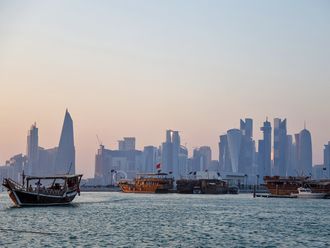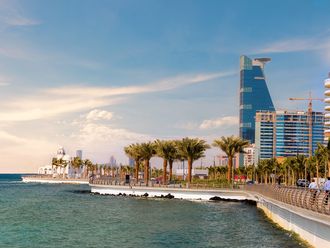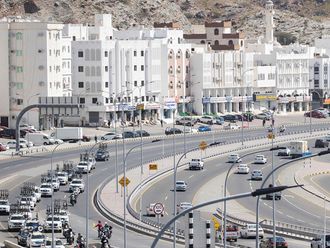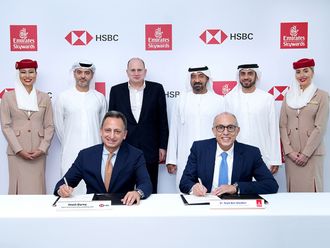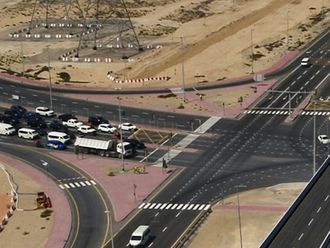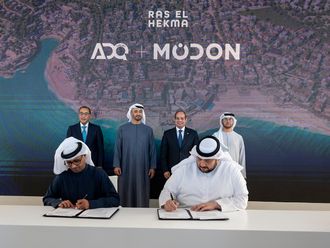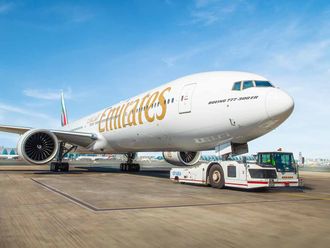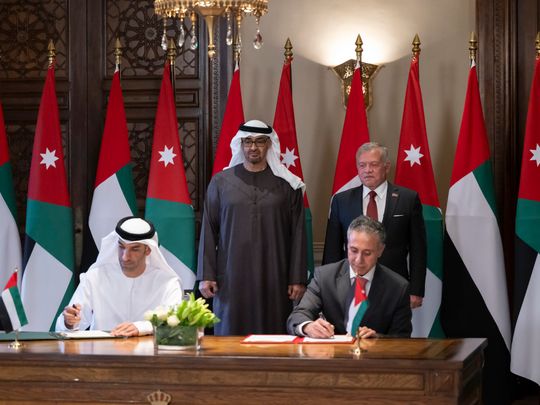
President His Highness Sheikh Mohamed bin Zayed Al Nahyan and King Abdullah II bin Al Hussein of Jordan on Sunday witnessed the signing of a Comprehensive Economic Partnership Agreement (CEPA) between the UAE and Jordan. The first CEPA to be signed between the UAE and an Arab nation, the deal aims to deepen bilateral trade and investment ties, accelerate growth in priority industries, create jobs, and strengthen supply chains.
During a ceremony held at Basman Palace in Amman, the agreement was signed by Dr Thani bin Ahmed Al Zeyoudi, Minister of State for Foreign Trade, and Yarub Falah Al Qudah, Jordan’s Minister of Industry, Trade and Supply.
Sheikh Mohamed and King Abdullah II also witnessed the signing of the Administrative Cooperation Agreement on Customs Matters between the UAE and Jordan. The agreement was signed on behalf of the UAE by Ali bin Hammad Al Shamsi, Chairman of the Federal Authority for Identity, Citizenship, Customs, and Ports Security, and on behalf of Jordan by Yarub Falah Al Qudah, Minister of Industry, Trade and Supply.
Sheikh Mohamed welcomed the CEPA as a natural progression of UAE-Jordanian strategic relations, noting that it lays a strong foundation for enhancing cooperation and economic integration between the two countries. It also paves the way for building more fruitful partnerships and initiating a new phase of long-term trade and investment collaboration, contributing to sustainable economic growth for both nations and fostering prosperity across the region.
King Abdullah II expressed his hope that the agreement would contribute to achieving the two countries’ shared vision for sustainable economic development and prosperity, as well as opening new opportunities for economic integration between them. He also praised the UAE’s support for development efforts in Jordan.
Bilateral trade
The deal builds on robust UAE-Jordan economic ties, with non-oil trade reaching over $4.2 billion in 2023. In the first half of 2024, non-oil trade between the two countries amounted to $2.7 billion, reflecting a growth of 36.8 per cent compared to the same period in 2023. Jordan is currently the UAE’s third-largest Arab trade partner outside of the GCC. Meanwhile, the UAE is Jordan’s top foreign investor, with mutual investment between the two countries estimated to be around $22.5 billion.
By removing or reducing trade restrictions and non-tariff measures on commodities and services, it is expected the CEPA will forge even closer ties, fostering opportunities across multiple sectors including renewable energy, industrial projects, manufacturing, transport, pharmaceuticals, and food processing.
The UAE’s CEPA programme is a key pillar of the country’s economic growth strategy aimed at deepening and expanding trade ties with nations around the world by reducing barriers to trade, enhancing market access, and facilitating increased private sector collaboration and investment.
Strong ties
Earlier in the day, the two leaders’ talks focused on the strong fraternal ties between the two nations and their close collaboration in areas that support a shared vision of sustainable development, prosperity, and stability.
The discussions took place during an official reception at Basman Palace in Amman, where His Majesty warmly welcomed the UAE President and his accompanying delegation, who are on a working visit to Jordan, expressing his pleasure at their visit.
During the meeting, the two leaders discussed the ongoing bilateral cooperation in areas such as the economy, investment, sustainable development, food security, renewable energy, and other key sectors. They reaffirmed their shared commitment to exploring new opportunities for collaboration and building strategic economic partnerships that align with the aspirations of both nations for development and progress.
Sheikh Mohamed and King Abdullah II spoke of the strong and deeply rooted ties between their countries, which can be traced back to the time of the late Sheikh Zayed bin Sultan Al Nahyan and the late King Hussein bin Talal.



